The deadline for public comments on the new N2 Wild Coast Toll road EIA is 22 January.
Please send your comments to:
Theo Hansford
NMA Effective Social Strategists (Pty) Ltd.
Box 32097
Braamfontein, 2017.
Fax: 086 601 0381
Email: theoh nma [dot] org [dot] za
nma [dot] org [dot] za
A number of requests were received from people who wished to send in comments against the N2 toll road proposal and in support of SWC (Sustaining the Wild Coast - www.swc.org.za) principles. Val Payn compiled the following (below) for general use. Please feel free to adapt or adjust it however you see fit. You can delete anything you don't personally agree with, or feel free to add any of your own comments that you feel it does not cover, or are more suitable for your own circumstances. You're also welcome to 'personalize' the wording in whatever way you like. However, if you would like to send it exactly as it is, then it is recommended that you include a 'provisio' along the lines of:-
We/ I support the concerns expressed by Sustaining the Wild Coast in reference to the N2 Wild Coast Toll road EIA which are summarily expressed below. Please note these as independent commentaries from ... ( add your name/s / contact details) .
Note that this is a summary of some of the main points that SWC has raised in its N2 EIA commentary:
Although the new EIA process professes to give an independent assessment of the merits of the proposal it is still saddled with dealing with the problems of an extensive infrastructure proposal, with far reaching and long term consequences for future national and regional development, that was developed as an isolated and unsolicited bid by a consortium of private bidding companies whose primary motivation was profit, rather than arising out of an integrated and comprehensive regional development plan. The underlying justifications and motivations for the N2 Toll road are therefore still highly clouded by the originating controversies that gave rise to the 2004 EIA Appeal Review.
There is still no adequate justification for a tolled highway that alternatives would not meet, particularly in its routing through the ‘Greenfields’ section of the Pondoland Centre of Plant Endemism. Justification for the route is derived primarily from the route being convenient from a road engineering point of view, which perspective sublimates broader social development and ecological considerations to secondary status. Upgrading existing routes or routing the N2 out of the PCE will still provide the same regional socio -economic benefits without the accompanying risk of environmental degradation to the PCE which the proposed route risks.
The proposed route through the Greenfields section does not serve the most densely settled area’s of this region, therefore how is it going to improve access for the majority of local populations unless the regional road network as a whole is improve? If the regional road network is improved, is there still adequate justification for a tolled national highway? It is questionable whether the N2, or a tolled route, is the most suitable infrastructure to provide needed improved access to isolated communities. Justifying a tolled highway on the basis of better access, without a preliminary investigation into what sort of access would bring most benefits and be most suitable for the social and ecological conditions of the area, borders on propagandizing and a case of ‘putting the cart before the horse’. Surely the route of the road should be dependent upon the outcomes of social development policies rather than the other way round?
The public consultation process is inadequate. Namely, the origins of the proposal originated as a business venture, rather than out of an assessment of local and regional needs. This means that all subsequent ‘consultation’ has been geared toward finding justification for the proposal, rather than beginning from a base which first determined local need, and then proposed suitable infrastructure arising out of this.
Given that the proposal is stated as being in the national interest, why were public consultation meetings not held in other major centres such as Gauteng?
The 2003 public participation process was found to have been flawed in the 2004 Appeal Review, therefore how can this be used as a basis for the 2008 process.
Many public concerns raised in 2003 have still not been addressed or overcome in the 2008 process.
Mitigations of negative impacts are not based in the realism of practical implementable plans and policy application given local conditions, but on assumptions that :-
a)Local authorities and regional government has the capacity and will to police and control any negative consequences that might arise as a consequences of the road e.g. ribbon development, pollution, unsustainable resources use. There is nothing in the recent history of the Eastern Cape to suggest that local and regional government has either the capacity or the skills to effectively control negative impacts that might arise from secondary impacts, and everything to suggest that the Eastern Cape authorities do not currently have the capacity to effectively police negative impacts and thus be effective agents for mitigation control.
b)Many mitigations are based on an assumption that the Pondoland Park is a given. To date anything remotely resembling a ‘ Pondoland Park’, or an area that is given high conservation status in terms of national resource allocation, remains nothing more than a far- sighted dream. Under these circumstances it is difficult to see how the concept of a ‘Pondoland Park’ can be named as a tool for ‘mitigations’ of negative impacts.
c)That a positive outcome for mitigations of negative impacts is overly optimistic, given real ‘on the ground’ conditions in the region.
Secondary and cumulative impacts have not been dealt with or addressed in any meaningful way. The EIA states that these are likely to have a significant impact on ecological systems, yet again most mitigations are based on unfounded assumptions that local authorities are adequately equipped to deal with the increased developmental pressures that the toll road might create. Mitigations for the control of secondary impacts are externalised onto local authorities, yet there are no concrete or detailed plans which indicate how local and regional authorities are going to be ‘empowered’ to deal with, or given the means, to deal with the consequences of controlling mitigating effects. Is this sense many mitigation give the appearance of being a ‘cop out’ by SANRAL. That is, the EIA acknowledges that the proposed route road will have undesirable negative impacts, but transfers the responsibility of dealing with these onto local authorities who are already hard pressed to deal with regional social and environmental problems. Under these circumstances, without a huge effort at local capacity building in terms of human resources and the development of local government capacity and skills, there is every chance that the increased pressures on the environment that the Toll road will bring will in the long term increase local levels of poverty and social inequality rather decrease these. The EIA give no indication on how the necessary capacity building will occur or unfold.
The EIA is full of contradictions and unfounded assumptions. Many of the so called ‘secondary benefits’, or multiplier effects, that the road is purported to support ( e.g extension of sugar and timber industries and mining) themselves will have high environmental impacts. If multiplier effects are dependent upon growth of secondary development these negate the statement that loss of biodiversity can be controlled or that secondary development can be controlled.
The cumulative impacts of multiplier effects have not been addressed in the EIA, but collectively the impacts of the development path that is suggested by these proposals is highly unsustainable at every level. This suggests the need for a holistic and strategic development plan, of which the route for the rd is a part. EIA statements that SANRAL should attempt to manage negative impacts do not constitute an adequate management plan.
Given the above, and given the lack of information about flora, fauna and the functioning of eco-systems in the region, the Precautionary Principle has not been upheld.
In light of the above, the EIA is partial to selective economic accounting and ‘value’ assessments that give a biased account of the desirability of the project, as well as bias toward the ‘SANRAL preferred route’ over other routes or options.
The issue of the exclusion of Toll fees from the socio-economic impact assessments has not been addressed which creates a bias in the socio-economic impacts.
Given the high environmental impacts of the proposal and the very ‘wishy washy’ suggested impact mitigations which lack any concrete detailed planning, the proposaI does not comply with NEMA regulations or Constitution Section 24 , and does not support the vision of the recently adopted National Framework for Sustainable Development as a guideline for the future development path of South Africa.
The EIA suggests that any broader macro-economic benefits that the road might bring would be dependent upon the formulation and implementation of a broader socio-economic development plan, and that without this it is unlikely that any of the regional benefits as a consequence of the road will be realized. This calls for the proposal to be considered within a broader socio –economic development plan, yet the proposal for the route has been developed in isolation of this. Given the lack of a broader socio –economic development plan needed to realize socio economic benefits of the road, in combination with the cumulative negative impacts that will arise as a consequence of the road, one has a likely situation where very few positive impacts might accrue, but a great many negative impacts might result. The net consequence is likely to be one of increasing social and environmental pressures and degradation, resulting in an increasing spiral of poverty and inequality. This begs the question why the road is being considered in isolation and again points to its founding motivation as being that of a business proposal rather than an infrastructure development serving the best national interests.
Increased traffic flow projections are based upon an assumption that increased traffic flow is going to maintain a steady and predictable rate. Oil peak theory and the current global economic downturn makes this a questionable assumption. Mitigations for climate change make it essential that dependency on carbon producing private motor vehicle use is reduced in favour of greater public transport facilities ( such as rail) and regional development systems that are not dependent upon the extensive long distance road haulage of goods.
Climate change, and various international obligations undertaken by South Africa in terms of the Millenium Development Goals, Agenda 21, and the Johannesburg hosted World Summit on Sustainable Development of 2002, require that South Africa makes every attempt to reverse biological and ecological degradation, and reduce the overall national environmental footprint.
The recently adopted National Framework on Sustainable Development recognizes that without these measures, achieving stated social and economic development goals will be increasingly unlikely, as the effects of environmental degradation will increasingly erode the resources available for socio-economic development. It is imperative that for a future path of sustainable development to be achieved, any infrastructure proposal that comes with a high environmental footprint or impact in biodiversity, such as the ‘Greenfields’ routing of the N2 through the PCE requires, absolute prudence. The mitigation measures outlines by the EIA , as well as the driving motivations as the various secondary proposals suggested as beneficiation, do not suggest that such prudence accompanies this proposal.
...
Read more
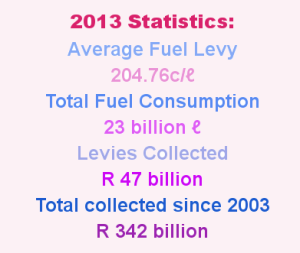




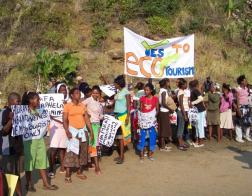

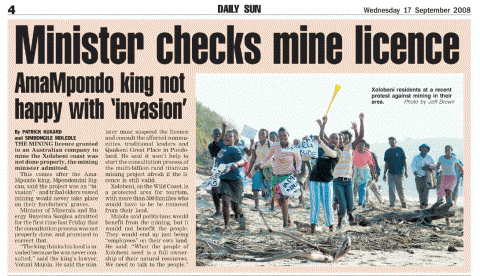
 Fin24 said construction could begin later this year and Ndebele had indicated that funds could come from the National Treasury.But the office of Ndebele’s spokesman, Logan Maistry, has declined to comment on the report, noting the minister’s official position had been spelled out in an article in The Mercury last month.
Fin24 said construction could begin later this year and Ndebele had indicated that funds could come from the National Treasury.But the office of Ndebele’s spokesman, Logan Maistry, has declined to comment on the report, noting the minister’s official position had been spelled out in an article in The Mercury last month. COMMUNITIES LODGE FINAL OBJECTION
COMMUNITIES LODGE FINAL OBJECTION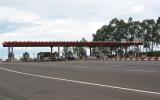 Bishop Geoff Davies - 6 May 2010
Bishop Geoff Davies - 6 May 2010 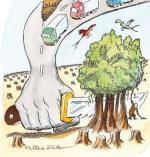 A recent parliamentary response to questions about the N2 Toll Road, posed to the Minister of Transport, shows the government has a deeply flawed understanding of the broader issues surrounding the N2 Toll road debacle. The Minister’s response suggests a government that is stuck in an inflexible time warp, basing its decisions on outdated, vastly flawed and unsustainable development projects that were conceived of in the early 90's, under scenarios vastly different from the situation that prevails today.
A recent parliamentary response to questions about the N2 Toll Road, posed to the Minister of Transport, shows the government has a deeply flawed understanding of the broader issues surrounding the N2 Toll road debacle. The Minister’s response suggests a government that is stuck in an inflexible time warp, basing its decisions on outdated, vastly flawed and unsustainable development projects that were conceived of in the early 90's, under scenarios vastly different from the situation that prevails today.